It can be challenging to fulfill all your financial obligations in the United States as an international student without a Social Security Number (SSN). An SSN is indeed regarded by many banks, credit card companies, and other credit agencies as a vital component of identity authentication and credit approval. Consequently, international students who do not receive an SSN immediately may find it challenging to access important financial products, such as credit cards.
Nonetheless, a credit card is not a convenience only in the U.S. that people in other countries have. It is also a necessity in a lot of situations. Credit cards can bring ease to daily spending, financial assistance in case of unforeseen circumstances, lack of foreign transaction fees, and most crucially, help a student begin having a credit history that will be needed later in life when applying to take out a loan, rent an apartment, or even, in some instances, get more job opportunities.
This guide will introduce you to the variety of credit card for international students without SSN, the advantages they have, and how to take full advantage of these credit cards. It is all about providing you with the necessary skills to make an informed, selective decision, be that to build credit, to find the best rewards, or to enable you to get started in a new land.
Why a Need Credit Card for International Students Without SSN
1-Building U.S. Credit History for Future Financial Opportunities
It is important that international students build a credit history in the U.S. A U.S. credit score unlocks some of the biggest stepping stones in life, such as renting apartments, getting cars or student loans, and getting a job, not least. Nonetheless, it is hard to start with nothing: international credit does not transfer, and with no SSN, there will be far fewer card approvals.
Starting with a secured or student credit card (which can sometimes be opened with an ITIN, or even with a passport in special programs like Zolve or Deserve), charging something small, and paying the balance in full each month is the best way to start. This establishes a good history as payments are reported to U.S. credit bureaus. It can also be sped up by being made an authorized user on an existing card of a person.
2-Taking Advantage of Rewards and Cashbacks
A credit card usually provides cash back or points, or travel-related benefits on everyday expenses (e.g., groceries, gas, or dining). International students will not have access to rewards cards right away, but there are still some student cards or niche cards to consider, including Deserve EDU, which has solid rewards, such as an annual fee waiver, Amazon Prime Student credits, and easy approval. This can assist international students to stretch their daily spending to get rewards, and this would not be attainable with debit cards and notes.
3-Avoiding Foreign Transaction Fees with Local Credit Options
A credit card at home tends to come with hefty foreign transaction fees (usually 1-3 per cent per transaction), as well as suffering from the rates of exchange. The students can end up spending in dollars, so long as they qualify to use a credit card issued by the United States, which may require an SSN or not. Because of this, there are no foreign transaction fees and no other additional charges to worry about (the conversion rates). This helps to maintain expenditure at a lower level, and also, budgeting is very easy, particularly on regular expenses such as phone bills or subscription payments.
Top Credit Cards for International Students in the USA
- What is an SSN, and Why SSN is an Generally Required
Definition: Clarify SSN (Social Security Number): this is a nine-digit identity number, which is issued by the U.S. government to report taxes, keep track of jobs, and build a credit history.
Credit Issuer Perspective: It is more important to point out that the majority of US banks and credit card firms use SSN to authenticate identity and use the US credit bureau system (Experian, Equifax, and TransUnion) to analyze the credit history of an applicant.
- The Introduction of ITIN/Alternative
Definition: Inform them that an ITIN (Individual Taxpayer Identification Number) is issued by the IRS to those persons requiring a taxpayer identification number and who do not qualify to receive an SSN.
Credit Cards: It is important to note that credit card applications using ITIN are accessible in certain institutions in lieu of SSN.
3. Other Accepted Documents
- Passport: The best source of international identification documents to students.
- Positive, said Visa (F-1/J-1), depicts lawful residence in the U.S.
- I-20 Form: Provides evidence that you are an active student, and this aspect is sought by some issuers to prove that you are a bona fide student applicant.
Address Proof: Utility bills, banks, or school letters that show housing letters that are important in getting a U.S. identity to pass.
4. The Effect of the Foreign Credit History on Eligibility
Reality Check: The credit history of U.S. residents skips a generation of most international students because the foreign credit bureau records rarely carry over into the United States.
Exception: There are services e.g. Nova Credit that allow some banks to access foreign credit data in some countries (e.g. UK, Canada, India, Australia).
Practical Tip: Some issuers approve without U.S. history, on the basis of income verification, school enrolment or security payments
Top Options of Credit Card for International Students Without SSN
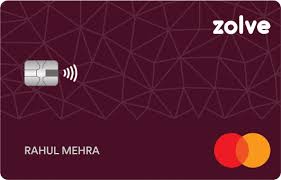
- SSN Requirement: Not required
- Key Features: Unlimited 1% cashback on all purchases, instant approval possible before arriving in the U.S., no annual fee.
- Why It’s Great for Educators & Students: Can be applied for overseas using your passport and visa; perfect for starting U.S. credit history early.
Extra Perks: Works with foreign credit history in supported countries.
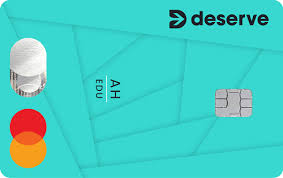
- SSN Requirement: Not required
- Key Features: 1% unlimited cashback, no foreign transaction fees, no annual fee.
- Unique Benefit: Free Amazon Prime Student membership for one year.
Why It’s Popular: Especially good for international students who shop online and travel.
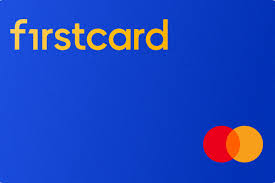
- SSN Requirement: Not required
- Type: Secured credit card
- Key Features: No credit check, 0% APR for the first year, refundable security deposit starting at $100.
- Best For: Those with zero credit history who want a low-risk way to start building credit
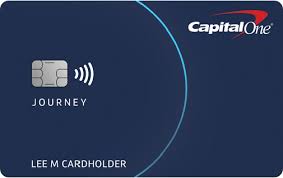
- SSN Requirement: ITIN accepted ✅
- Key Features: 1% cashback on all purchases (1.25% if you pay on time), no annual fee.
- Why Consider It: Encourages good payment habits with higher rewards for on-time payments.
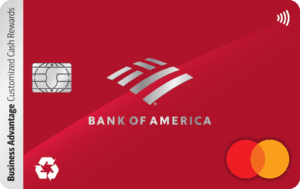
- SSN Requirement: Can be issued without SSN when applying in-branch with valid passport, visa, and proof of address.
- Travel Rewards: Unlimited 1.5 points per dollar spent on all purchases, no foreign transaction fees.
- Cash Rewards: Choose 3% cashback category (e.g., gas, online shopping) plus 2% at grocery stores.
How to Apply for a Credit Card Without an SSN
Most banks and credit card providers in the United States will accept an application by people without a Social Security Number (SSN), whether they are foreign students and residents. A passport, visa documents (such as an I-20), or an Individual Taxpayer Identification Number (ITIN) can be used frequently in its place. The following is how the process can be navigated.
- Application Process through Passport, I-20 or ITIN step-by-step
Step 1: Select a Card Into Which Non-SSN Applications are Accepted
Find out cards that target international students or recent immigrants. Examples are Zolve Credit Card, Deserve EDU Mastercard, and some bank-issued student cards.
Step 2: Ready Your Identification Documents
Based on the bank, you can be required to:
- Passport (this should be valid)
- I-20 Form (students that use F-1 visas)
- F-1, J-1 or other approved category visa
- ITIN (in case existent)
- Evidence of U.S. residency in letters (utility, lease or bank statement)
Step 3- Apply Online or In-Branch
Online: Choose the option, No SSN and provide your passport or ITIN.
Or in-branch: Submit your documents in person. Bank agents are capable of making a manual check of your identity and enrollment status.
Step 4 – Show Evidence of Enrolment (where the latter is on a student card)
- Present your I-20 or formal certificate of enrollment verification letter of your school.
Step 5- Wait till Verified and Approved
- The bank will require proof of your identity, address, and student status.
- It requires some days or two weeks of processing.
- Getting an ITIN if You Don’t Have an SSN
An ITIN is a tax-processing number that the IRS has created in order to process the tax of individuals who are not eligible to obtain an SSN but still require filing their taxes or must have a specific financial account opened.
To Obtain an ITIN:
- Complete form W-7 (Application to the IRS of an Individual Taxpayer Identification Number).
- Acquiring the necessary paperwork: passport (original or certified copy), visa, evidence of residence.
- Send (in the mail) to the IRS through an IRS Certifying Acceptance Agent (CAA) or visit one of the IRS Taxpayer Assistance Centers.
- Where to Send It: IRS ITIN Application Page.
- Advice on International Student Successful Applying
Begin with a student/secured credit card. These usually have lower entry criteria.
- First open a U.S. bank account—it would make the approval process smoother to have an account in the same bank.
- Use your school email address—it will assist in verifying student status.
- Only one card at a time should apply; that is, too many applications are detrimental to your creditworthiness.
- Provide Proof of Income—In case you have an on-campus job, send us your offer letter or pay stubs.
- Significance of Verification and Proof of Enrollment and Identity
Banks are also required by the U.S. regulations to confirm the identity and resident status of the people. To foreign students:
- Proof of Enrollment (I-20 or enrollment letter) affirms you are a student and that you meet the eligibility to get a visa.
- Identity verification keeps fraud away and ensures your application is legitimate.
- In their absence, even the issuer who is not so SSN-friendly will most likely dismiss your request.
Common Challenges and How to Overcome Them
Limited Credit History and How Issuers Assess Creditworthiness Without an SSN
Lack of credit history in the United States is one of the greatest problems facing international students who enter the country without an SSN. Indeed, credit card issuers predominantly depend on credit reports to come up with an evaluation regarding the creditworthiness and risk of an applicant.
In the absence of an SSN, the students usually lack any record in the U.S. credit system because credit information from other countries is usually not acknowledged by the U.S. bureaus. Lack of this can quite frequently result in automatic denials or be passable only on secured or low-limit cards.
To deal with this, students can:
- Where it is available, an Individual Taxpayer Identification Number (ITIN) should be used, since some issuers will accept ITINs rather than SSNs.
- Become an authorized user of a credit card (in the family or among friends) so that good credit history assists in their credit record.
- Then there are the secured credit cards that require no SSN but payment of a security deposit, which reduces the risks of the issuer.
- Pick those issuers that might regard the possibilities of credit evaluation based on alternative tools, like international credit history (e.g., some cards issued by American Express) or other documents, like passports and I-20 documents.
Potential Fees and Costs to Watch Out For
When such students are choosing credit cards, they ought to understand that there might be some fees attached to them, particularly because there are cards specifically for students without an SSN that might have to attach higher fees to them compared to the ordinary cards. Typical charges are:
Annual charges: There are cards that would incur annual charges that could be low or moderate annually. You should seek the student-focused cards with no annual fee, such as the Deserve EDU Mastercard or the Zolve card.
Foreign Transaction Fees: These are charges put in place on purchases made in a foreign country using U.S.-issued cards, but on some cards, the charges apply to foreign purchases or transactions made outside the U.S Students must choose cards with no foreign transaction fees, especially when they go overseas or make transactions outside the U.S.
Late Payment Fees and Cash Advance Fees: Late payment fees and Cash advance fees are essential, which can accumulate and affect credit scores when late on payments. The international students must be aware of the dates when payments have to be made and avoid unneeded cash advances.
Better Interest Rates: Student credit cards may be subject to higher interest rates due to the rate of higher risk of an applicant without a proven credit.
Close comparison and reading of card terms is very important to avoid surprises.
Differences in Approval Criteria Among Card Issuers
There is a great variation in the credit card companies’ acceptance standards of international students who lack an SSN:
- Not all issuers necessarily need an SSN or an ITIN.
- Others might accept a passport, a school visa, and an I-20 form.
- Claiming SSNs, issuers such as Deserve, Zolve, and Firstcard are famous options that facilitate easier application procedures for foreign students.
- It can involve verifying the income, verifying the school enrollment, or the first deposit on secured cards.
- Capital One or even American Express may accept international credit history (traditional banks) or bear a domain on issuing an ITIN.
Due to these discrepancies, international students have to conduct research and find out which issuers the non-SSN applicants and need to learn of the detailed documentation and eligibility requirements of each issuer to find the issuer that meets their circumstances.
Tips for Using Your Credit Card Wisely in the U.S.
Importance of Timely Payments to Build and Maintain Good Credit
Making prompt payments of credit card bills is a major ingredient to having a good credit. At least payments prevent fines and interest, as well as credit problems. By implementing automatic payments, one will be guaranteed of a good credit with credit bureaus and this will help in future approval.
Avoiding High-Interest Debt and Managing Limits Responsibly
There is usually a high interest charged on credit cards, particularly those cards given to students or people with poor credit. Pay off pay balances (on time) and avoid cash advances; keep pay balances low so lenders can see that you can control credit.
Monitoring Your Credit Score and Understanding Credit Reports
Monitor your credit report and score regularly to identify errors and fraud and areas of improvement. The U.S. law permits consumers to get one free report each year using Experian, Equifax, and TransUnion. Being current would enable you to keep a good credit in order to be able to use it in the future.
FAQs
- Can international students get a credit card without an SSN?
Yes, some cards accept alternatives like passports or ITINs, and students can also be authorized users. - What is the difference between SSN and ITIN?
SSN is for work-authorized individuals; ITIN is for tax identification if you don’t qualify for an SSN. - Can foreign credit history help?
Rarely; most U.S. issuers don’t recognize it, but a few, like American Express, might. - Are there fees associated with these credit cards?
Yes, watch for annual fees, foreign transaction fees, late fees, and possibly higher interest rates. - How long does it take to build credit as an international student?
Usually 6 to 12 months with responsible use and timely payments.
Conclusion
To conclude, the U.S. credit system might be a difficult thing to deal with without the Social Security Number, but circumvention becomes possible once the international students learn how to build credit and achieve financial independence. Building credit in early college years through the use of a credit card for international students without an SSN (e.g., a secured card or a special student-specific program) is not only a smart practice in terms of affordability of everyday expenses and emergency cases but also leads to beneficial opportunities in the future, such as renting an apartment, receiving a loan, or having access to superior financial services and products.
In addition to the convenience, responsible usage of credit cards lends itself to the creation of a good credit history, a major asset to long-run financial health and prosperity in the U.S. A good first step in the right direction is to look into those recommended credit cards specific to international students, so get at it today, and don’t be afraid to take advantage of the services offered by your school to international students as well. It is important to make the beginning of your finances now, as it will greatly ease your path throughout and post-study periods in America.

